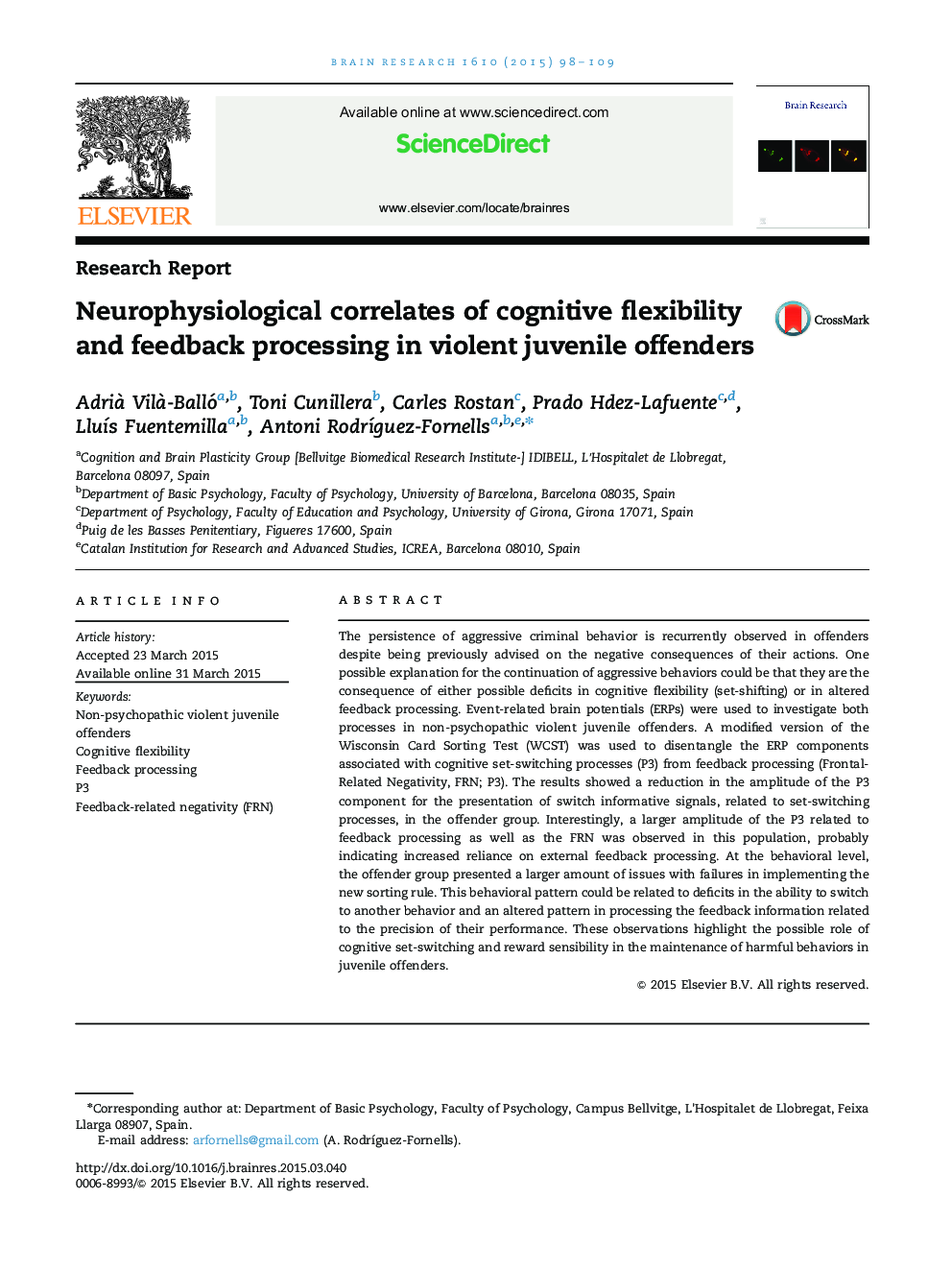| کد مقاله | کد نشریه | سال انتشار | مقاله انگلیسی | نسخه تمام متن |
|---|---|---|---|---|
| 4323810 | 1613829 | 2015 | 12 صفحه PDF | دانلود رایگان |
• Set-shifting and feedback related ERPs were assessed in violent juvenile offenders.
• Set-shifting was affected in juvenile offenders as showed by a decreased P3 amplitude.
• Feedback processing was altered in juvenile offenders as indicated by larger FRN/P3 amplitudes.
• Higher perseverative errors and reward sensibility were found in juvenile offenders.
The persistence of aggressive criminal behavior is recurrently observed in offenders despite being previously advised on the negative consequences of their actions. One possible explanation for the continuation of aggressive behaviors could be that they are the consequence of either possible deficits in cognitive flexibility (set-shifting) or in altered feedback processing. Event-related brain potentials (ERPs) were used to investigate both processes in non-psychopathic violent juvenile offenders. A modified version of the Wisconsin Card Sorting Test (WCST) was used to disentangle the ERP components associated with cognitive set-switching processes (P3) from feedback processing (Frontal-Related Negativity, FRN; P3). The results showed a reduction in the amplitude of the P3 component for the presentation of switch informative signals, related to set-switching processes, in the offender group. Interestingly, a larger amplitude of the P3 related to feedback processing as well as the FRN was observed in this population, probably indicating increased reliance on external feedback processing. At the behavioral level, the offender group presented a larger amount of issues with failures in implementing the new sorting rule. This behavioral pattern could be related to deficits in the ability to switch to another behavior and an altered pattern in processing the feedback information related to the precision of their performance. These observations highlight the possible role of cognitive set-switching and reward sensibility in the maintenance of harmful behaviors in juvenile offenders.
Journal: Brain Research - Volume 1610, 12 June 2015, Pages 98–109
